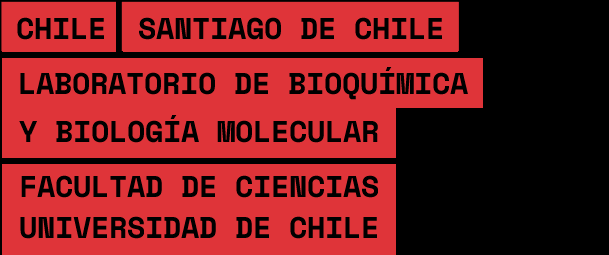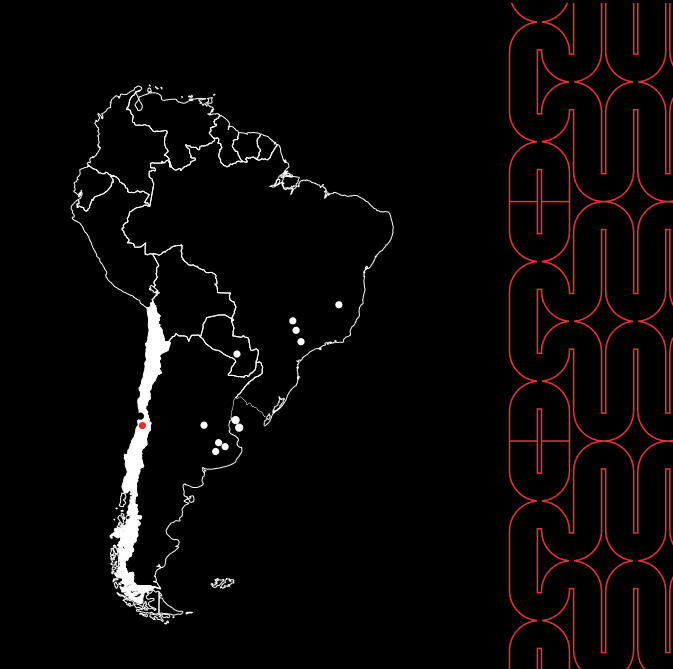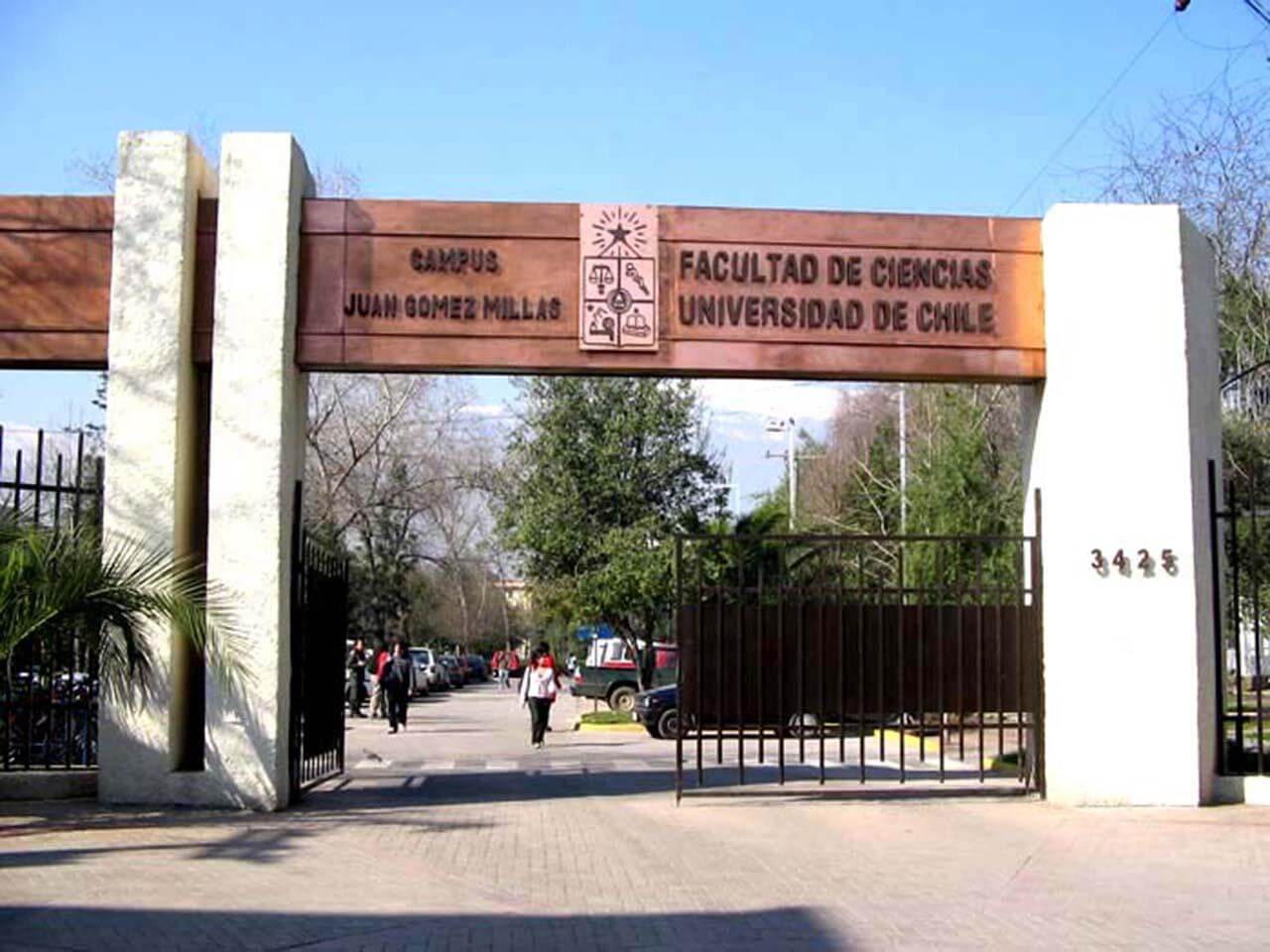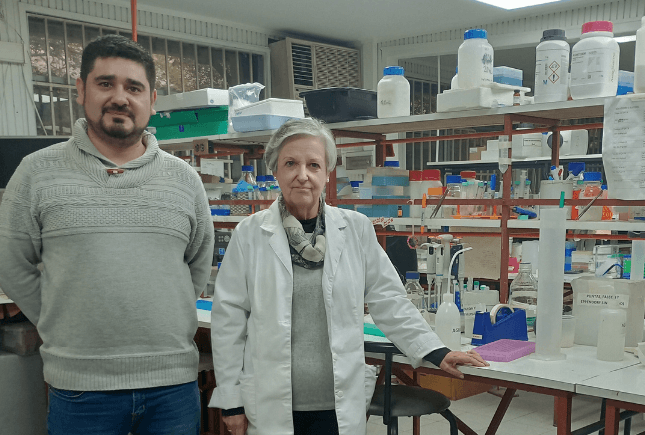

Research center
The Biochemistry and Molecular Biology Laboratory at the Faculty of Sciences of the University of Chile has a trajectory of over 50 years and was one of the first biochemistry laboratories to be established in the country. Since its beginnings, it has been involved in research related to protein biophysics and enzymology, positioning itself at the forefront of these areas within Chile.
Much of the research is underpinned by the molecular evolution of protein families, demanding a multidisciplinary approach where structural biology plays a fundamental role. In this context, we employ both X-ray crystallography, small-angle X-ray scattering (SAXS), and more recently, we have been working with cryo-electron microscopy.


Research lines
An important part of our research focuses on studying the evolution of proteins and enzymes in traits such as enzymatic promiscuity, substrate specificity, allosteric regulation, catalytic mechanisms, and adaptation to various extreme environments (psychrophiles, thermophiles, halophiles).
We employ the methodology of ancestral enzyme reconstruction to trace the evolutionary pathways of these traits and the associated structural aspects. In addition to X-ray crystallography, SAXS, and cryoEM, we utilize approaches such as steady-state enzymatic kinetics, rapid kinetics (pre-steady-state), fluorescence, circular dichroism, thermodynamic studies of molecular interactions, protein stability, bioinformatics, computational molecular dynamics simulations, and recently, multiparametric single-molecule fluorescence.
Instrumentation
- Protein crystallization unit: Crystallography robot (Drop Setter - ARI Crystal Gryphon, Art Robbins), crystal transportation system, and puck for remote synchrotron diffraction (Dry shipper – Universal puck).
- Spectrophotometry unit: Two instruments with array photodiode detectors (Agilent 8453 and 8454 UV-Vis coupled to an 8 multicell kinetic system), UV/Vis Jasco V-630 with peltier for stability and temperature assays. JASCO FP-8300 spectrofluorometers with peltier/polarimeters and FP-8350 coupled to a 96-well plate reader. UV/Vis plate reader Biotek-Synergy2.
- Protein chromatography and purification unit: 2 AKTA prime and 1 AKTA start systems (Cytiva), HPLC Jasco LC-4000 with autosampler and UV/Vis, IR, and fluorescence detectors. Shakers and centrifuges for the expression and purification of recombinant proteins.
- Stopped-Flow system (two syringes) RX2000 (Applied Photophysics) with UV/Vis and fluorescence compatibility.
- 3 PCs with RTX2080Ti GPUs for molecular simulation production and analysis with AMBER.
- AMD 5975WX server, 256 GB RAM, 4TB SSD - 32 TB HDD, and RTX 4090 GPU for molecular simulation and cryoEM data processing.
- Multiparametric single-molecule fluorescence: Confocal microscope (Zeiss LSM 710) coupled with pulsed lasers, single-photon avalanche diodes (SPAD), and PicoQuant detectors. Enables measurements of fluorescence lifetimes at the single-molecule level and experiments such as single-molecule Förster Resonance Energy Transfer (smFRET), single-molecule Fluorescence Anisotropy (smFA), and single-molecule Fluorescence Correlation Spectroscopy (smFCS), among others.
- SAXS/WAXS/GISAXS system, Anton Paar, SAXSpoint 2.0.
- Circular dichroism spectropolarimeter with Stopped-Flow, Jasco J-1500.
- Las palmeras 3425, Ñuñoa, Santiago - Chile
- +56229787231
- lab.bioquimica.ciencias.uchile@gmail.comDr. Victor Castro Fernandez: vcasfe@uchile.cl Dra.Victoria Guixé: vguixe@uchile.cl
- https://sites.google.com/view/labbq/
Five days of intense work, hands-on learning and scientific collaboration at @CNPEM 🇧🇷
Researchers from Latin America and Europe came together to explore the intersection between drug discovery and structural biology, through theoretical sessions and practical training.










